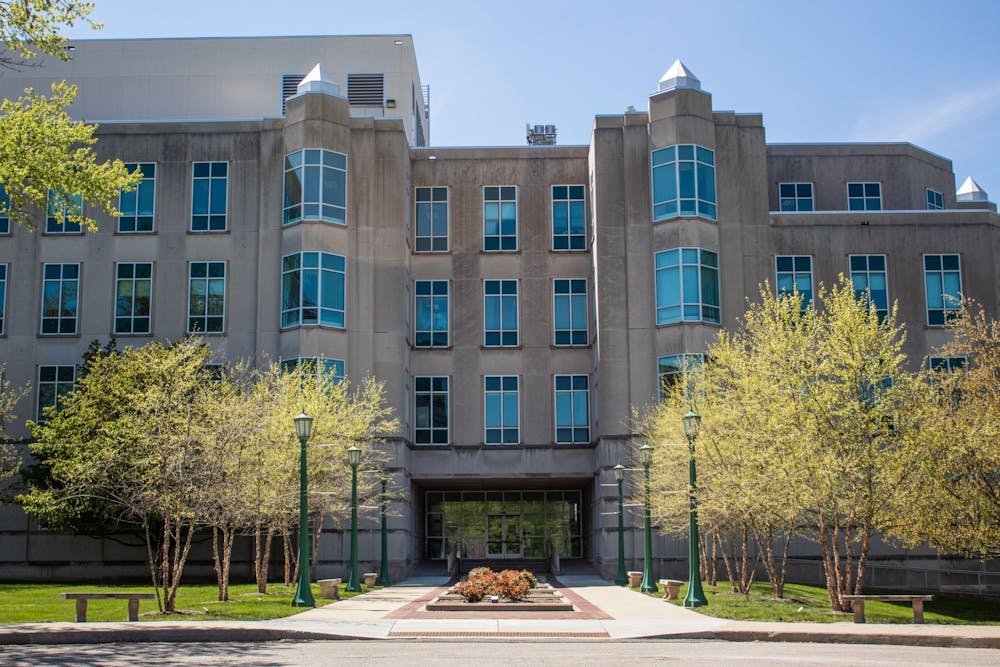Gov. Eric Holcomb signed Senate Bill 205 into law April 22. The bill allows people who are at least 26 years old and possess a bachelor's degree to be given a first-year teacher’s license, after completing an alternative training program, and adds other training requirements.
The bill specifies the alternative program must include training in teaching practice and subject areas. It will also require teachers to demonstrate subject knowledge, complete state subject exams, take CPR and youth suicide awareness and prevention training, and verfiy exams by a third party.
There are numerous ways to gain a teacher’s license in Indiana through an alternative program, according to the Indiana Department of Education website. Individuals can gain licenses through advanced degrees, charter school licensure, career specialist permits or through programs such as the Montessori Accreditation Council for Teacher Education, Troops to Teachers, Indiana Teaching Fellows or Teach for America.
Jill Shedd, IU School of Education assistant dean for teacher education, testified about the bill in the House Education Committee on March 31 as the executive director of the Indiana Association of Colleges for Teacher Education.
Related: [4 bills to watch in the 2021 Indiana legislative session]
“IACTE still has concerns about parts of this bill that would not provide the assurance of consistent quality and accountability for all the available preparation programs,” Shedd said during testimony.
According to WFYI, the bill is designed to allow a certification program known as American Board to be used in Indiana. Shedd said the bill doesn’t mention American Board, which offers certification through a self-paced online model, but is written in a way that assumes only American Board can meet the specifications.
Shedd said said alternative programs are programs that are different from four-year undergraduate programs.
Shedd said she was disappointed in the bill because Indiana has almost 40 institutions providing undergraduate degrees in education and at least eight approved alternative pathways.
Shedd said Senate Bill 205 would not require the IDOE’s program review process and limits the number of accountability measures the alternative programs may address.
“We will not be able to say that about this program through the American Board,” Shedd said. “They are not being required to be approved in this, in that same way by the Department of Education.”
Related: [Indiana Senate bill would survey public college students’ perception of free speech on campus]
Shedd said the approval process, which requires programs to submit information about courses, plans of study, instructional and assessment material, and faculty, according to IDOE, ensures all programs have met the same standards.
Another concern, Shedd said, is that the bill doesn’t require classroom experience to gain a teacher’s license and contract. The one year of required classroom experience, Shedd said, occurs after individuals get their license.
“American Board completers may have had instruction by reading something online, which any and all of us could do,” Shedd said.
The teacher shortage, Shedd said, is not about the lack of preparation programs but rather about respect for educators.
“We can begin to turn perspectives and culture around to honor teachers, and to pay them accordingly, will do wonders for our teacher shortage, not another alternative program,” Shedd said.
Jeffrey A. Anderson, IU associate dean for undergraduate education, said the combination of classroom experience and knowledge of teaching methods are both important in training.
“The best practice is not anything standing on its own, it's this combination of opportunities that we provide our teacher candidates,” Anderson said.
For the most qualified people to be in the classroom, Anderson said teacher pay must be increased, which has not been the case in Indiana.
According to a report from The Next Level Teacher Compensation Commission, the average pay for Indiana teachers in the 2018-19 school year was $51,119, and in the 2019-20 school year teachers received an average raise of $2,215 according to WTHR.
Another section of the bill prohibits individuals who gain licenses through the bill to teach special education courses.
While it’s difficult to become a special education teacher in Indiana through alternative certification, Anderson said often inexperienced teachers are put in the field. The field's difficulty and its teachers’ lack of experience often lead to people leaving education, he said.
“I'm pleased that Indiana hasn't made it super simple to become a special ed teacher,” Anderson said.
Janet Decker, IU School of Education associate professor, said it’s important for teachers to become legally literate because they become knowledgeable and feel empowered to change the law. Legal literacy, she said, includes spotting legal issues and having the skill to apply the law to common issues in education.
“I really think it's important for them to be legal literate to proactively learn about the law, the legal system and what they can do to have their voices heard,” Decker said.






